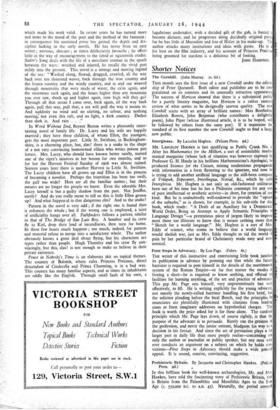First Steps in Advocacy. By Leo Page. (Faber. 6s.)
THE writer of this instructive and entertaining little book justifies its publication in advance by pointing out that while the future barrister is required to post himself in the details of the matrimonial system of the Roman Empire—or for that matter the modes of freeing a slave—he is required to know nothing, and offered no facilities for learning anything, of the art and practice of advocacy. This gap Mr. Page sets himself, very unpretentiously but very effectively, to fill. He is writing explicitly for the young advocate, not merely the newly-called barrister handling his first brief, but the solicitor pleading before the local Bench, and the principles he enunciates are plentifully illustrated with citations from leading cases or from imaginary addresses on hypothetical charges. The book is worth the price asked for it for these alone. The cardinal principle which Mr. Page lays down, of course rightly, is that the purpose of the advocate is to persuade. Rarely can the greatest of the profession, and never the junior entrant, bludgeon his way to decision in his favour. And since the art of persuasion plays a fat larger part in daily life than most people realise—concerning not only the author or journalist or public speaker, but any man who ever conducts an argument on a subject on which he holds con- victions—First Steps in Advocacy should make a wide general appeal. It is sound, concise, convincing, suggestive.


























 Previous page
Previous page